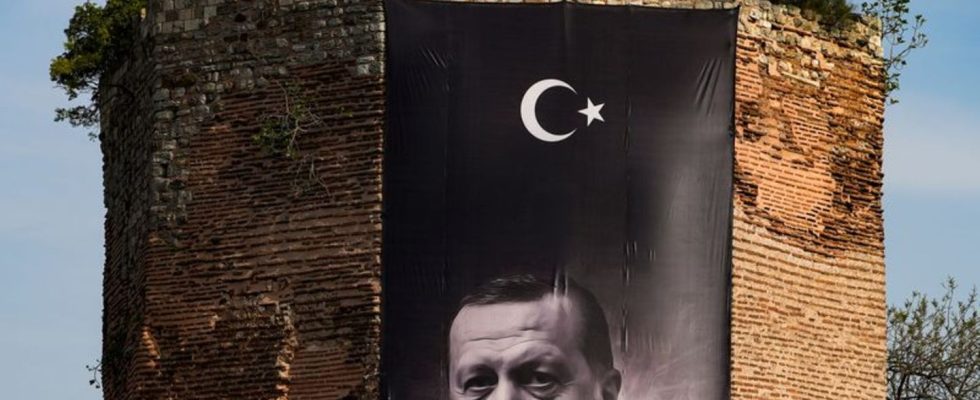portraits
Erdogan and Kilicdaroglu – The candidates of the runoff
In power in Turkey for more than 20 years: Recep Tayyip Erdogan. photo
© Emrah Gurel/AP/dpa
The Turkish President Erdogan has to face a runoff election for the first time. His challenger Kilicdaroglu wants to prevent his victory with all his might. Who are the two candidates in the runoff?
In the presidential election two weeks ago, Erdogan narrowly missed out on an absolute majority. Now he’s the favorite in the runoff. An overview of him and his opponent Kemal Kilicdaroglu.
Incumbent Recep Tayyip Erdogan
President Recep Tayyip Erdogan (69) is one of the most influential politicians since the founder of the state, Mustafa Kemal Ataturk. His Islamic-conservative AKP came to power in 2002, Erdogan became prime minister in 2003 and has been president since 2014.
In his first years in government, Erdogan ensured a remarkable economic upswing. Meanwhile, the Turks are struggling with high inflation and unemployment. Since the transition to a presidential system in 2018, Erdogan has wielded more power than ever before. The EU Commission recently attested to Turkey’s democratic setbacks and increasing pressure on civil society.
Erdogan comes from the working-class district of Kasimpasa in Istanbul, and his family comes from Rize on the Black Sea. He played football in the amateur league. In the early 1990s he was mayor of the metropolis of Istanbul.
During the election campaign, Erdogan tried to score points with prestigious projects, for example in the armaments industry. Turkey is only big and strong under his leadership, he says. He also criminalizes the opposition and calls them “terrorists.” In recent years he has pursued a sometimes aggressive foreign policy. In the Ukraine war he poses as a mediator.
Erdogan promises to get inflation under control. Under his leadership, she has only set records. He also wants to quickly rebuild the earthquake region. He is supported by the ultra-nationalist MHP and small Islamist parties. Erdogan controls much of the media, which gave him an advantage in the election campaign.
The challenger – opposition leader Kemal Kilicdaroglu
Strengthening democracy, fighting inflation and corruption and a stricter migration policy – this is how opposition leader Kemal Kilicdaroglu (74) advertises. He initially presented himself as an alternative to Erdogan: a calm, instead of pithy demeanor and election campaign videos from a simple kitchen, instead of the initiation of large-scale projects. Before the runoff, however, he switched his positive campaign to attack. He sharpened his tone, especially against refugees, and came to an agreement with a right-wing party.
Kilicdaroglu is not a new face for the Turks either. He has been at the head of the largest opposition party, the CHP, for 13 years, but has not yet had any success in national elections. His candidacy was therefore initially controversial. In the local elections of 2019, the opposition succeeded in wresting the important metropolises of Istanbul and Ankara from the government after two decades. A success that Kilicdaroglu can also claim thanks to clever alliances.
Kilicdaroglu has brought together six parties from different camps, ranging from nationalist to conservative and ultra-religious to his own secular centre-left party CHP. The left-wing pro-Kurdish HDP also supports him.
Kilicdaroglu was born in Tunceli in eastern Turkey. He belongs to the Alevi religious minority. He made a career as a bureaucrat in the civil service. The image of the colorless bureaucrat still lingers on him. In the meantime, however, he has gained in profile.

